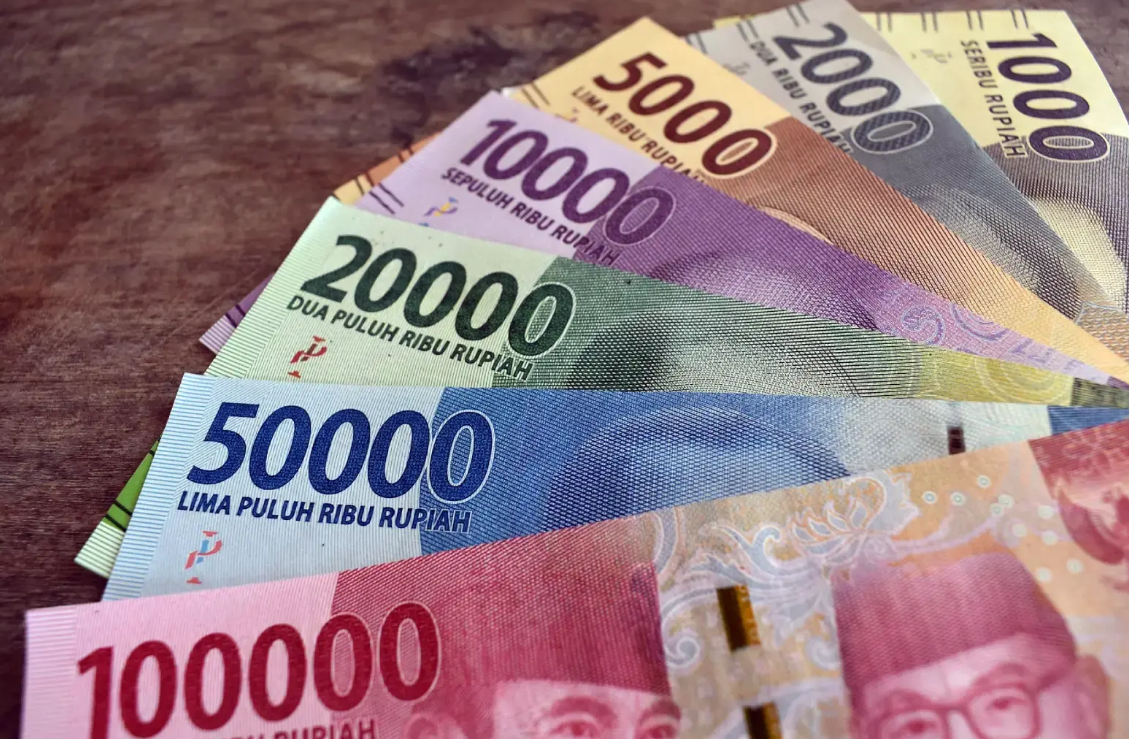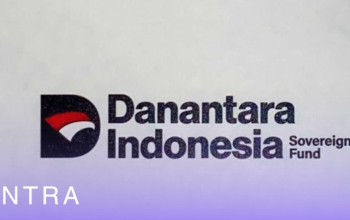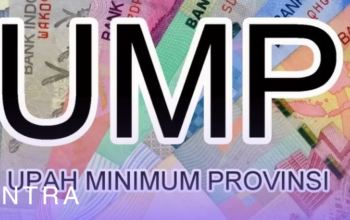Sentra– Rupiah Under Further Pressure: The Indonesian rupiah continues to face significant pressure, weakening to Rp16,412 per US dollar. This development has raised concerns among economists and investors alike, as it reflects broader economic challenges both domestically and globally.
Factors Contributing to the Rupiah’s Weakness
- Global Economic Uncertainty: The rupiah’s depreciation is partly driven by heightened global economic uncertainty. Factors such as trade tensions between major economies, geopolitical conflicts, and fluctuations in global commodity prices contribute to a risk-off sentiment among investors. During periods of uncertainty, investors often seek safe-haven assets like the US dollar, leading to capital outflows from emerging markets including Indonesia. This increased demand for the US dollar relative to the rupiah puts downward pressure on the Indonesian currency.
- Interest Rate Differentials: Interest rate differentials between Indonesia and major economies, particularly the United States, play a crucial role in determining currency flows. When interest rates in the US rise or are expected to rise, investors tend to shift their investments to US dollar-denominated assets to capitalize on higher returns. This movement of capital out of Indonesian assets to US assets can weaken the rupiah as demand for the Indonesian currency decreases.
- Domestic Economic Fundamentals: The rupiah’s depreciation is also influenced by domestic economic factors. Indonesia’s trade balance, inflation rate, and fiscal health all impact the currency’s value. A persistent trade deficit, where imports exceed exports, puts downward pressure on the rupiah as more foreign currency is needed to pay for imports. Moreover, if inflation rises significantly above the central bank’s target, it may prompt expectations of monetary tightening, leading to increased interest rates and further depreciating the rupiah.
- Political Stability and Policy Uncertainty: Political stability and policy continuity are critical for investor confidence and currency stability. Uncertainty surrounding elections, changes in economic policies, or geopolitical tensions domestically can lead to capital flight and weaken the rupiah. Clear and consistent economic policies that support growth and stability can help mitigate these risks and support the value of the rupiah.
- External Debt and Currency Reserves: Indonesia’s external debt levels and its adequacy of foreign currency reserves also influence the rupiah’s stability. High levels of foreign debt denominated in US dollars or other foreign currencies increase the vulnerability of the rupiah to currency fluctuations. Sufficient foreign exchange reserves held by the central bank can provide a buffer against external shocks and support interventions to stabilize the currency during periods of volatility.
Understanding these factors is essential for policymakers and investors to navigate the dynamics affecting the Indonesian rupiah. Addressing these challenges through sound economic policies, fiscal discipline, and structural reforms can help strengthen the resilience of Indonesia’s economy and mitigate the impact of external shocks on the currency.
Economic Impact of Rupiah Depreciation
- Increased Cost of Imports: As the rupiah weakens, the cost of imported goods and commodities rises. Indonesia relies heavily on imports for products ranging from raw materials for manufacturing to consumer goods. Higher import costs can lead to inflationary pressures, impacting the purchasing power of consumers and potentially reducing overall consumption levels. Essential items such as food, fuel, and pharmaceuticals become more expensive, affecting household budgets and contributing to higher living costs.
- Export Competitiveness: While a weaker rupiah makes imports costlier, it can simultaneously enhance the competitiveness of Indonesian exports on the global market. Export-oriented industries, such as textiles, electronics, and agricultural products, may benefit from increased demand abroad due to lower prices in foreign currencies. This can potentially bolster export revenues and improve the country’s trade balance over time.
- Foreign Debt Servicing: Indonesia has a significant amount of foreign-denominated debt, particularly in US dollars. As the rupiah depreciates, the cost of servicing this debt increases in local currency terms. This places additional financial strain on businesses and the government, potentially diverting resources away from productive investments and economic growth initiatives.
- Investment and Capital Flows: Currency depreciation affects investor sentiment and capital flows into and out of Indonesia. Foreign investors may perceive higher risks in holding rupiah-denominated assets when the currency is weakening, leading to reduced foreign direct investment (FDI) and portfolio inflows. Conversely, Indonesian investors may seek to diversify their assets by investing abroad to hedge against currency depreciation risks, further impacting domestic investment levels.
- Monetary Policy and Inflation: The central bank’s response to currency depreciation often involves adjusting monetary policy, particularly interest rates, to stabilize the exchange rate and manage inflation. Higher interest rates intended to support the currency can also dampen domestic economic activity by increasing borrowing costs for businesses and consumers. Balancing the need for currency stability with economic growth objectives becomes crucial for policymakers during periods of currency volatility.
- Overall Economic Confidence and Stability: Currency weakness can undermine overall economic confidence and stability. Businesses may delay investment decisions or scale back expansion plans due to uncertain economic conditions. Consumer confidence may also decline as inflation erodes purchasing power, leading to subdued consumption levels and weaker economic growth prospects in the short term.
Mitigating Measures and Long-Term Outlook
To mitigate the adverse effects of rupiah depreciation, Indonesian policymakers often implement a combination of monetary, fiscal, and structural reforms. These measures typically include:
- Enhancing Export Diversification: Promoting non-traditional exports and value-added industries to reduce dependency on volatile commodity exports.
- Maintaining Fiscal Discipline: Ensuring sustainable fiscal policies to manage budget deficits and reduce reliance on external borrowing.
- Strengthening Financial Sector Resilience: Enhancing regulatory frameworks and banking sector stability to withstand external shocks.
- Promoting Investment and Infrastructure Development: Encouraging private sector investments through incentives and improving infrastructure to support long-term economic growth.
While currency depreciation poses immediate challenges, proactive policy responses and structural reforms can enhance Indonesia’s economic resilience and foster sustainable growth in the face of global economic uncertainties.
The Indonesian government and Bank Indonesia, the country’s central bank, play crucial roles in responding to the challenges posed by the depreciation of the rupiah. Their actions are aimed at stabilizing the currency, managing inflation, and supporting overall economic stability.
Government and Central Bank Responses to Rupiah Depreciation
- Monetary Policy Adjustments: Bank Indonesia (BI) typically adjusts monetary policy in response to currency depreciation. One of the primary tools at its disposal is the interest rate. BI may raise interest rates to attract foreign investment and stabilize the rupiah. Higher interest rates can help stem capital outflows by making domestic assets more attractive to investors seeking higher returns.
- Foreign Exchange Market Interventions: During periods of severe currency depreciation, Bank Indonesia may intervene directly in the foreign exchange market. This intervention involves buying rupiah and selling foreign currencies, particularly the US dollar, to increase demand for the local currency and support its value. Conversely, BI may also use its foreign exchange reserves to intervene indirectly by adjusting market expectations and stabilizing the exchange rate.
- Fiscal Policy Measures: The Indonesian government can complement monetary policy with fiscal measures to support the economy during currency volatility. Fiscal interventions may include targeted spending on infrastructure projects, subsidies for essential goods, or tax incentives to stimulate domestic consumption and investment. These measures aim to bolster economic activity and mitigate the adverse effects of currency depreciation on businesses and consumers.
- Communication and Market Confidence: Clear communication from both the government and central bank is crucial to maintaining market confidence during periods of currency volatility. Transparent communication about policy objectives, economic conditions, and future strategies helps manage expectations and reduce uncertainty among investors and the public. This proactive approach can contribute to stabilizing financial markets and supporting the rupiah.
- Structural Reforms and Long-Term Strategies: Beyond immediate policy responses, Indonesian authorities may pursue structural reforms aimed at enhancing economic resilience and reducing vulnerabilities to currency fluctuations. These reforms may include improving regulatory frameworks, promoting diversification in export sectors, enhancing productivity through technology and innovation, and strengthening the financial sector to better withstand external shocks.
- Collaboration with International Institutions: In some cases, Indonesia may collaborate with international financial institutions, such as the International Monetary Fund (IMF) or regional development banks, to access financial resources and technical assistance during times of economic stress. These partnerships can provide additional support for policy measures aimed at stabilizing the rupiah and restoring economic confidence.
Outlook and Effectiveness of Responses
The effectiveness of government and central bank responses depends on various factors, including the severity of currency depreciation, global economic conditions, and domestic economic fundamentals. Timely and coordinated policy actions, supported by a clear commitment to stability and reform, can help mitigate the impact of currency depreciation on the Indonesian economy. By maintaining a balanced approach between monetary, fiscal, and structural measures, Indonesia aims to navigate currency volatility and foster sustainable economic growth over the long term.
Outlook and Recommendations
As Indonesia grapples with the challenges posed by the depreciation of the rupiah, the outlook remains influenced by both domestic policies and global economic dynamics. Here’s an expanded perspective on the outlook and recommendations for navigating these complexities:
Outlook
- Economic Resilience Amid Global Uncertainty: The Indonesian economy faces ongoing uncertainties stemming from global economic trends, such as trade tensions and geopolitical risks. These factors continue to exert pressure on the rupiah, affecting investor sentiment and capital flows. Moving forward, maintaining economic resilience will be crucial in mitigating the impact of external shocks on the currency and overall economic stability.
- Inflation Management and Monetary Policy: Bank Indonesia’s monetary policy stance, particularly regarding interest rates, will be pivotal in managing inflationary pressures amid currency depreciation. Adjustments in interest rates can influence domestic demand, investment levels, and inflation expectations. Effective communication of policy intentions will help anchor inflation expectations and support the stability of the rupiah.
- Structural Reforms and Economic Diversification: Structural reforms aimed at enhancing economic diversification and reducing reliance on commodities exports are essential for long-term stability. Promoting sectors such as manufacturing, technology, and services can bolster resilience against external shocks and contribute to sustainable economic growth. Investments in infrastructure and human capital development will also play a crucial role in strengthening Indonesia’s economic foundation.
Recommendations
- Maintain Fiscal Discipline: The Indonesian government should prioritize fiscal discipline to manage budget deficits and reduce reliance on external financing. Prudent fiscal policies can help build investor confidence and mitigate risks associated with currency depreciation.
- Enhance Export Competitiveness: Supporting export-oriented industries through incentives, infrastructure development, and trade facilitation measures can enhance Indonesia’s competitiveness in global markets. Diversifying export destinations and product offerings can reduce vulnerability to fluctuations in commodity prices and exchange rates.
- Strengthen Financial Sector Resilience: Enhancing the resilience of the financial sector through regulatory reforms and improved risk management practices will be crucial. Robust banking supervision and measures to address non-performing loans can help maintain financial stability during periods of economic volatility.
- Promote Investment and Innovation: Encouraging private sector investment in innovation, technology adoption, and sustainable development initiatives can drive productivity gains and economic diversification. Creating a conducive business environment with clear regulatory frameworks and legal certainty will attract both domestic and foreign investments.
- Harness Digital Transformation: Embracing digital transformation across sectors can unlock new growth opportunities and improve efficiency in the economy. Investments in digital infrastructure, e-commerce platforms, and fintech innovations can foster inclusive growth and resilience in the face of global economic uncertainties.
- Build Resilience Against External Shocks: Strengthening Indonesia’s foreign exchange reserves and maintaining adequate liquidity buffers will provide a cushion against external shocks. Collaborating with international financial institutions to access emergency financing facilities can also enhance policy flexibility during times of economic stress.
Conclusion Rupiah Under Further Pressure
Navigating currency volatility requires a multifaceted approach that integrates prudent macroeconomic policies, structural reforms, and strategic investments in key sectors. By implementing these recommendations, Indonesia can enhance its economic resilience, promote sustainable growth, and mitigate the impact of currency depreciation on businesses and households. Looking ahead, proactive policy responses and a commitment to reform will be essential in shaping a resilient and dynamic economic future for Indonesia.




